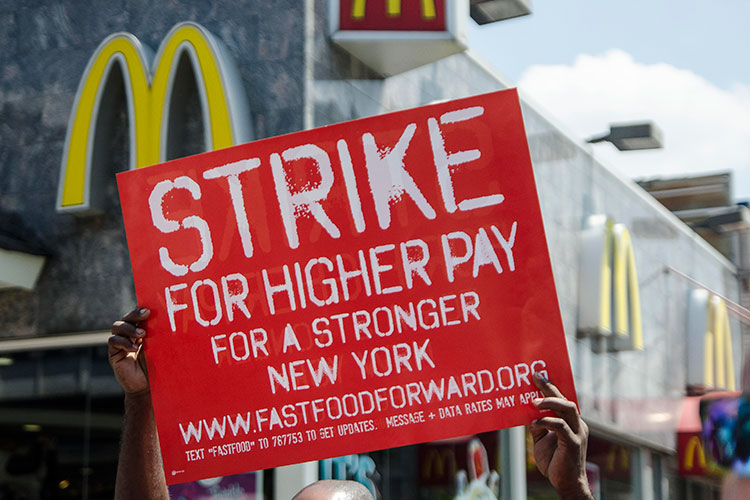Forked: Rating eateries on how they treat workers
Poverty and lack of paid sick days are two of the biggest problems facing restaurant workers, says Saru Jayaraman, director of UC Berkeley’s Food Labor Research Center. In her book “Forked,” just out, she ranks eateries based on how they treat staff.

February 9, 2016

One in 12 working Americans are employed in the food industry — many of them living at the poverty line, says UC Berkeley’s Saru Jayaraman, director of both the Food Labor Research Center and Restaurant Opportunities Center United, a national advocacy organization.
In Forked: A New Standard for American Dining, just out, Jayaraman — a leading expert on what it’s like to work in the restaurant industry — offers 14 case studies and ranks working conditions at eateries ranging from greasy-spoon diners to national chains and white-tablecloth venues.
On the low end, “workers get a wage as low as $2.13 an hour (the federal minimum for employees who earn tips), unpaid sick days, no opportunity for mobility and may experience sexual harassment from customers. But restaurants can be both profitable and good places to work,” she insists.
Read a Q&A with Jayaraman on the NPR science blog “The Salt.”